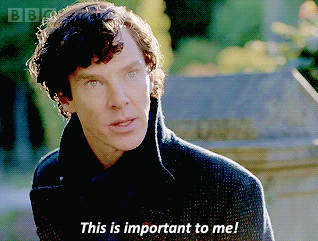Course Policies
Office/Student Hours

- As you may note from the FAQ Syllabus on Brightspace, I will be in my office a lot. I have an open-door policy: stop by whenever within the time frames and I will be happy to chat. Additionally, if my door is open during the day and it’s not one of the above time frames, I am available. If my door is closed, but you know I’m here, then you should come back. You can check my website for these times rather than emailing me to ask me if I’ll be there. You might want to email me to let me know you’re coming or make an appointment, but walk-ins are welcome. I will specify whether there are circumstances that will cut into my office time as needed.
- AN IMPORTANT NOTE ON OFFICE/STUDENT HOURS: In case you’re not aware, office hours are actually FOR STUDENTS. They’re a chance for you to get help on assignment, go over material covered in class, talk about some connections between class material and your other academic or extracurricular work, get advice about career or graduate school options, and so on. They are generally student-directed, but I can help you formulate questions to ask based on my sense of your strengths and weaknesses. I STRONGLY ENCOURAGE you to take advantage of this time!
General Late Work and Make-up Policies
- If participation in university-sponsored events (e.g., athletics) or observance of a religious holiday or other sanctioned event prevents your attendance, you should contact me prior to the relevant date, and you must have any appropriate documentation. If an assignment is due on that date, arrangements must be made to complete the assignment ahead of time, if possible.
- Unless otherwise stated, all assignments are due at the beginning of class (unless otherwise noted for electronic assignment submissions). Late assignments will only be accepted on a case-by-case basis, and may involve point/percentage deductions (standard penalty is 10%/24-hr period; I reserve the right to change the penalty in either direction). Please alert me to these extraordinary circumstances by email as soon as you can after the missed class, and we will set up a time to discuss the situation.
- Refer to the Quiz section above for details about Quiz Make-up policies.
- Refer to the BENEFIT-OF-DOUBT POLICY detailed in the FAQ Syllabus on Brightspace.
Grade Dispute Policy
If you disagree about how your term assignments were graded, you must dispute the issue in writing (not email). Write a paragraph about why you think your attempt was correct/sufficient and turn it (with the original assignment) in to me at the lecture following the return of the relevant assignment. Only reasonable and well-justified complaints will be considered, and all decisions are final. Please note that if you submit a complaint, I will re-grade the entire assignment, and your grade could increase, decrease, or remain the same. This policy does not apply to final course grades.
Class/Zoom/Twitch Etiquette
- Please do not use your cell phones during class. I would prefer them to be put on silent or off and away in your bag/pocket. If your cell phone goes off during class or quiz, please silence it immediately; do not let it ring through. I will remind everyone prior to quizzes to make sure their phones are turned off. Please refrain from text messaging during class. I know you think you’re being subtle; I assure you that I can see you texting.
- Please do not leave the class partway through unless it is an emergency; it is very disruptive. If you must leave, please sit near a door or at the edge of an aisle so as to not disrupt your fellow classmates. Letting me know you’re leaving is a lovely courtesy so I can prepare.
- Please have respect for the class, your peers, and yourselves by being fully present in the class. Please avoid anything not relevant to the class, such as sleeping, surfing the Internet/social media, or doing homework for other classes.
- Lateness: Please try to arrive a few minutes before the start of lecture. We will begin promptly at the class start time, and it can be distracting to me and to your peers if you arrive late. I will try not to keep you late.
- On Zoom:
- If we are completely online and using Zoom for class, consider having your camera on, but it is by no means required, for two reasons: 1) your space may not be private and 2) bandwidth/connection issues.
- If you want to participate in a fully online class, either use Chat or turn your video on when using audio.
- Generally stay muted while on Zoom.
- If on Zoom for hybrid delivery, please stay on mute for the entire class period and use Chat for communication.
- On Twitch:
- I have specific chat rules on Twitch that I expect to be followed by my students.
- Comments and questions not related to class should wait until after I’m done lecturing.
- Students may use Brain Points at any time, but redemption will likely be after lecture has finished.
- I encourage the use of emotes!
- Students may not subscribe to the channel, send donations/tips, or cheer/use bits.
- Non-students may be in chat and I try my best to use lulls in the lecture (as I normally would in class) to address distractions or interruptions.
Attendance
- Students who take notes, ask questions, respond to questions, and come to office hours are typically the ones who succeed in this class.
- Though attendance is not required by College policy, I strongly recommend you attend class prepared and present. As such, you will not be penalized in your grade for missing a class directly. Participation Points generally account for an indirect measure of attendance. If you do happen to miss a class, that’s OK, but you will be responsible for all material covered in lecture, some of which will not be covered by the textbooks. If you know about an absence beforehand, please send me an email to let me know (I will likely NOT respond to these emails).
Advice for Course Success

- It is important for all students to realize that there will be a distribution of grades in this class that reflects your mastery of some very technical and often-challenging concepts. Complete mastery of all concepts will earn an “A,” good but imperfect knowledge earns a “B,” average or adequate knowledge will earn a “C,” and poorer knowledge will receive grades of “D” or “F.” By these criteria, the majority of grades should (and likely will) be “B/C” grades. Remember that your grade in this course is not a reflection of your general ability or your character.
- This is a challenging, but not impossible course; it is my hope that you will find this class challenging but rewarding in terms of the knowledge you will walk away with. If you anticipate having difficulty (or when you are), I strongly urge you to do the following:
- Attend every lecture, and take good notes. While attendance will not be graded, per se, the ability to truly learn and use the material in this class is strongly related to attendance.
- Review lecture notes on the day of the lecture (before you go to bed). If you need clarification on anything, ask in the next lecture, lab, or office hours. Don’t wait until right before the quizzes!
- Manage your time wisely. This is an intense course with many moving pieces and specific terminology. Familiarize yourself with the syllabus, put important dates in your calendars now, and space out your work – there is just too much to do it at the last minute.
- Use the resources available to you – that includes your course materials (especially this syllabus), me, and the many amazing services offered on campus (e.g., the Learning Center, the Writing Center).
- Discuss the material with another student. Form a study group. Go to office hours. Ask me questions. ASK QUESTIONS. ASK ALL THE QUESTIONS—DO NOT WALLOW IN YOUR OWN CONFUSION.
Final Point: I Care About You

- Ok, look, a DISCLAIMER: I’m usually sarcastic, sardonic, snarky, flippant, goofy, challenging, brusk, nerdy, and weird. Sometimes, my sarcasm is perceived as arrogance, disdain, or dislike. I assure you, it takes significant energy for me to overcome my introversion and anxiety to stand in front of strangers to talk about stuff I’m really enthusiastic about and be judged for it. My sarcasm is NEVER intended to do harm, but if it does, I make a proactive apology for it. But I’m human and I make mistakes. If we could talk about it, that would probably make both of us feel better. If you feel intimidated by that, I get it; there’s a power imbalance. BUT, you can bet your sweet bippy I don’t hold grudges nor let any bad feelings impact my grading and evaluation of my students. More specifics below.
- Eureka College is an institution committed to helping everybody associated with it—students, teachers, administrators, grounds staff—become their best selves. As a teacher, I become my best self my helping you become your best self. That means:
- Everything I ask you to do (even stuff you don’t like) is intended to help you learn and grow. You can trust me to have your best interests at heart.
- My office is always a safe space for you. So is our classroom. If you ever feel that isn’t true, talk to me.
- If you need any accommodation—for disability, mental health, or just having a rough week, talk to me.
- If anything in you like is keeping you from doing your best work in our class, talk to me. It can be illness (physical, mental). It can be loneliness and homesickness. It can be trouble at home, trouble with family, trouble with relationships. It can be fear for personal safety, food insecurity, homelessness, job loss. Whatever it is, I can’t promise a solution, but I can promise to do whatever I can to help you find the resources you need. Talk to me.
- I want our class to be a safe space. To me this means a place where you feel safe expressing your thoughts, working through things. But it also means a space where you are safe from abuse, negativity, bigotry. Some of the topics we deal with may be difficult. We may struggle. We may need to take breaks, come back to things. This is all part of thinking through big ideas. Because these things don’t happen right away, but occur over time, brief snapshots of our class are not representative of who we are and what we do. To ensure our class remains a safe space, come tell me as soon as possible so I can rectify the situation.
Inclusivity
Every student in this classroom, regardless of personal history or identity categories, is a valued member of this group. Your experiences are valuable and important, and you should feel free to share them as they become relevant to our class. No student in this class is ever expected or believed to speak for all members of a group.
In this classroom you have the right to determine your own identity. You have the right to be called by whatever name you wish, and for that name to be pronounced correctly. You have the right to be referred to by whatever pronouns you wish. You have the right to adjust those things at any point in your education.
Changes to Syllabus
I reserve the right to make policy/course changes to the syllabus at any time with advance notice to students.
College Information/Policies
Accessibility (ADA) Statement
The Learning Center, located on the first floor of Alumni Hall, provides academic services to all Eureka College students. Consultations are available in the areas of math and writing. Study groups, individual academic counseling, and course specific tutoring are also available by contacting Jason Zimmerman at x6520 or jzimmerman@eureka.edu.
Any Eureka College student with a disability or other special circumstances requiring accommodations or other consideration in order to successfully complete the requirements of this course is requested to identify himself/herself/themself to the instructor and discuss the matter privately. This disclosure should be made within the first week of the course so proper accommodations can be made.
Academic Honesty and Integrity Statement
Eureka College strives to instill individual responsibility and integrity in its students, and expects its students to behave with integrity throughout their time at the College. Any giving or receiving of unpermitted aid on tests or assignments is considered cheating. If a student is uncertain about how to document sources or incorporate materials into a paper, it is his or her responsibility to seek help by speaking to the faculty member, another professor, or a Writing Center tutor. The College’s Academic Dishonesty policy is outlined in the Student Handbook.
Academic dishonesty constitutes a major breach of the trust that exists between the instructor and the student. It includes passing off another’s ideas as one’s own (plagiarism), any attempt to gain information about a test or exam prior to the test or exam date without the instructor’s consent, and providing unauthorized assistance on a test, exam, paper, or other assignment to another student. Cheating or plagiarizing on a test, exam, quiz, paper, or other assignment will result in a failing grade for the assignment. Further dishonesty will result in failing the course. Students who fail for academic dishonesty will not have the option of withdrawing from the course. All instances of academic dishonesty will be forwarded to the Provost’s office in written form.
A specific note on plagiarism: Plagiarism occurs when someone misrepresents the work of another as his or her own. Plagiarism may consist of using the ideas, sentences, paragraphs, or the whole text of another without appropriate acknowledgement, but it also includes employing or allowing another person to write or alter work that a student then submits as his or her own. Although some assignments or projects in this class can be completed in pairs, all writing must be the work of the student whose name is on the assignment, and that student alone. If you are at all uncertain about what constitutes plagiarism, please see me—do not risk your grade or integrity! I also encourage you to meet with me if you suspect that another student in the course has engaged in academic misconduct.
Title IX Policy
Title IX of the Education Amendments of 1972 states: “No person in the United States shall, on the basis of sex, be excluded from participation in, be denied the benefits of, or be subjected to discrimination under any education program or activity receiving Federal financial assistance.”
Eureka College is committed to providing a learning, working and living environment that promotes personal integrity, civility and mutual respect in an environment free of sexual misconduct and discrimination. Sexual discrimination violates an individual’s fundamental rights and personal dignity. Eureka College considers sexual discrimination in all its forms to be a serious offense. This resource refers to all forms of sexual discrimination, including: sexual harassment, sexual assault, and sexual violence by employees, students, or third parties (Title 20 U.S.C. Sections 1681-1688).
Persons who wish to report any form of sex discrimination may contact the College’s Title IX Coordinator. The Title IX Coordinator can assist with all aspects of the reporting procedure and will conduct an investigation into a complaint. Employees of the College can also make an initial report to their immediate supervisor who must report it to the Title IX Coordinator.
IMPORTANT NOTE: I am a mandatory reporter, compelled by both federal/state law and College policy. If you disclose a report of sex discrimination, I must report it to the Title IX Coordinator within 24 hours.
Resources for victims of sexual misconduct:
- The Title IX Coordinator can assist with finding on and off campus resources.
- UnityPoint Health – Unity Place (mental health services): (309) 347-5522
- National Sexual Assault Hotline: www.rainn.org.
- Woodford County Center for Prevention of Abuse: 800-559-7233
- Reassignments – When the survivor and the accused student participate in the same class(es) and/or reside in the same college residence or in proximity to one another, survivors may request that a fair and immediate way to reassign and/or move one of the persons be decided upon by College Administration.
Counseling Services
Eureka College contracts through UnityPoint Health – Unity Place in order to provide free counseling services to students. This service is available for both residential students and commuter students and can take place either in person (in a private area on campus), through phone, or through video (i.e., telehealth).
Counselors meet with students for any type of issue, including depression, anxiety, stress, family/relationship problems, alcohol and other drug issues, eating disorders, etc. Sometimes it helps to talk to someone who is removed from the situation.
UnityPoint Health – Unity Place has set hours for appointments. Students wishing to make an appointment need to call (309) 347-5522 and identify themselves as a student. Eureka College has worked with UnityPoint Health to help provide a diversified counseling staff in order to meet the needs of our students. Eureka College also partners with UnityPoint Health in order to provide some group counseling sessions, with a range of topics. Students are not asked to share personal information during group sessions but can learn about ways to help cope with depression, anxiety, isolation due to COVID-19, and other mental health struggles.

